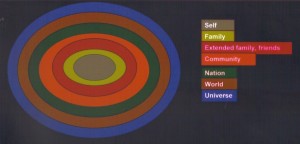In many of my recent posts, I have talked about the principles behind personal mastery and its relevance to our lives and the world around us. In this post, I would like to highlight how this journey can become an important source of change in our lives, particularly when seen in the context of the ever non-conclusive, biological, social, psychological, and neurological, debate about “nature versus nurture”.
The other day, my wife read out my supposed personality traits from a horoscope website and I was amazed at the quality of matches. While I am not one taken to reading the weekly forecasts or be fatalistic about the future, the accuracy of the assessment did leave me with a couple of questions – is the deepest part of my personality predetermined at birth or can it change? What could create the change? And, that’s what has led me to this article.
The genetic DNA imprint is probably the single most significant factor of the future destiny of a child at birth. The DNA comprising of three billion bases, tied up in one unique combination out of zillions of possible sequences, provides the first perspective of the predisposed personality traits, likes, dislikes, health patterns and inclinations of the child. If it weren’t for the power of genes (and nature), two siblings who have been provided largely the same upbringing, won’t turn out so different in their attitudes, preferences, and behavior – one is totally organized, very expressive, and loves art; the other forgetful, very analytical and crazy about sports. In a spiritual sense, each child is the product of that special circumstance of universe which brings together the ancestral history of several past generations in a unique manner. All medical examinations begin with checking the medical history of the parents and grand parents; sounds like nothing could be more important than the genes we are born with.
But then, decades of psychology research would have us believe in the power of…












